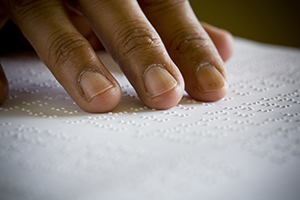Latest News Archive
Please select Category, Year, and then Month to display items
12 January 2024
|
Story Nonsindiswe Qwabe
|
Photo Sonia Small
 Since joining the UFS in 2008, Dr Grey Magaiza has worked extensively on approaches that can foster the socio-economic transformation of societies.
Since joining the UFS in 2008, Dr Grey Magaiza has worked extensively on approaches that can foster the socio-economic transformation of societies.
“The future should be one where communities can decide on their development agenda and futures. That’s the most important for me.” Dr Grey Magaiza, Deputy Director of the Centre for Gender and Africa Studies (CGAS) and Head of the Community Development programme on the Qwaqwa Campus, is passionate about capacitating communities to be agents of change and advancement. His vision for the future emphasises the empowerment of communities to take charge of their development by actively participating in decision making and the implementation of development projects that can improve their lives.
Since joining the UFS in 2008, Dr Magaiza has worked extensively on approaches that can foster the socio-economic transformation of societies. Over the years, he has crafted his research speciality into one that he is most proud of – being an interdisciplinary scientist immersed in the development of communities.
“I’m in a fortunate position of researching what I like. I say ‘fortunate’, because I’ve taken the time to understand what I’m passionate about, which is the overall field of rural livelihoods and livelihood futures – in short, community development. My research starts from an engaged university, understanding the elements that a university must use to enhance transformation and relevance to its immediate community in terms of development.”
One of the ways he has done this is by looking at social entrepreneurship as a development approach for young people in a rural setting. Through workshops with non-profit and civic organisations in Qwaqwa, Dr Magaiza has been helping these organisations to map out their needs and actively meet them through the involvement and support of external role players.
“We understand that communities are part of the national development agenda, but even that national agenda respects community knowledge and intentions and allows communities to shape their identity. A critical enabler of this is community organising. You bring back the capacity in communities to have dialogues on issues affecting them as spaces for engagement, knowledge exchange, and for people to just talk about their way forward.”
By enabling communities to define their development agenda, they can address their specific needs, challenges, and aspirations, he said. “When I look at livelihood futures, it’s quite an exciting aspect of my work – it’s like looking into a fortune tellers’ globe, because you’re not deciding for communities what they should do, but the communities themselves take those decisions.”
First Rand Foundation contributes funding towards students with disabilities
2017-01-02

Photo: iStock
Bursary funding for eight students with disabilities at the University of the Free State was recently approved by the First Rand Foundation. The grant of R2 497 440 will be paid over three years: R800 000 (2016/17), R824 000 (2017/18), and R873 440 (2018/19).
This grant from the First Rand Tertiary Education Fund is a result of the negotiations between the UFS Office for Institutional Advancement and the First Rand Foundation (FRF).
Qualifying students with disabilities will be encouraged to apply for bursaries according to criteria and requirements set by the First Rand Foundation. The selection process will be handled by a panel from the UFS. The Centre for Universal Access and Disability Support (CUADS) at the UFS will be instrumental in the process of identifying students with disabilities who meet the criteria and requirements for funding.
CUADS already have a system in place to support students with disabilities in their studies and during exams. Students also have access to specialised exam and test venues for alternative test and exam procedures, as well as computer facilities.
Specialised support services include an amanuensis (scribe) service during tests and exams, accommodating extra time, individual tutor sessions provided in collaboration with the Centre for Teaching and Learning, South African Sign Language interpreter coordination, provision of accessible study material, and individual disability support.
“The centre aims to ensure that the university increasingly becomes a universally accessible environment that is welcoming and accepting to people with diverse abilities.”
According to Martie Miranda, Head of CUADS, the centre aims to ensure that the university increasingly becomes a universally accessible environment that is welcoming and accepting to people with diverse abilities. “Therefore disability awareness training and advocacy within the UFS, and specifically among staff members, is one of our priorities,” she said.
According to Thandeka Rantsi from the FRF, the company will furthermore support students in CUADS with regards to the needs ensuing from the #feesmustfall protests. “Exactly R34 000 was approved by the FRF for 14 students towards residence and meal expenses, as well as scribe and reader assistance during additional assessments,” she said.